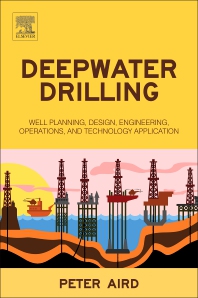Do you genuinely know the people who make up your company?
In a small family business, of course we know everything about our team members. Heck, we may even want to forget some of those things. However, any company with a desire to scale in size and reach has to grow beyond the straightforward, family business approach of knowing your people.
Scaling a business changes all traditional dynamics of engagement. With five employees, you can easily stay engaged with every team member. You lead them in the field every day, sharing whatever crazy, muddy experience that day’s jobsite presents. Those experiences allow you to genuinely know your people’s strengths, weaknesses and motivations.
Imagine that same company scales from five to 35, with hopes of doubling that number twice more. Now, you only make it to the field to address a problem. The more you grow and add additional teams, the more complex this situation becomes. With growth as the primary goal, how do you continue to stay current with your people? As a growing business, how do you know you have built the right teams? As a growing business, how do you develop and coach leaders that execute the way you did?
Discovery Questions
A good leader who can no longer be in the field must see the field from the team’s eyes. That sightline starts with simple discovery questions.
- Do you like your job?
- Do you feel safe?
- What do you want to do next?
In the field, just simple observation can offer insight into a drill team. We get to witness their reaction to a challenging situation. Maybe the tremie line snapped off above a coupling and Benseal EZ-Mud shoots everywhere. If they can move on to the next task safely — even with a bit of swearing — and the day isn't ruined, we know the team can overcome bad situations. However, once removed from the field, we no longer see how they react and cope under pressure, or how the new leader helps them drive through it.
Their Time and Feedback is Essential
A larger team requires a new level of commitment to know everyone. Invite your team to visit you and discuss project completion, company culture, safety and life in general. Do more than just tell employees you have an open-door policy, come on anytime. Our people have sense enough to view your diminished field presence in the right context — you are busy growing the business — and they will not want to impose.
Imagine that same company scales from five to 35, with hopes of doubling that number twice more. Now, you only make it to the field to address a problem
I consider it critical to team engagement to break that too-busy-to-be-available stigma. When an individual seeks you out, maximize the time you have with them. If you cannot find the time at that moment, schedule a meeting for another time right then. Show them how essential you consider their time and feedback. For example, I might stay late at the office, watching all the crews come in. How do they interact? You can learn a lot from how your people and equipment come in at the end of the day. The office is also quiet, giving more introverted employees the room they might need to approach you.
Do you Like your job?
This rough and tough industry often views people’s feelings as an inconvenience to completing the job. Asking “Do you like your job?” goes against many companies’ ingrained culture. Maybe we fear learning something we knew, but don't know how to deal with — like maybe a toxic veteran employee driving off new talent. A great leader has to get comfortable dealing with uncomfortable feedback. Your plans to further scale the business require a capable team scaling and executing around you. If Jimmy is a bully today, he will continue to be a bully unless you take the feedback and address it.
The discovery questions you ask will help you envision how projects function in the field. Every leader’s instincts say to talk to the driller and field supervisors first. As the folks driving your intent on the jobsite, it’s an obvious place to start. “Do you like your job?” you ask your driller. They say, “Yeah, I get paid every Friday, and it's better than working at Hot ’n Now.” What did we learn? We learned that drilling, for us, beats flipping cheap burgers in Sturgis, Michigan, for a failed franchise. However, as with drilling, sometimes, we have to go deeper to find more production. Ask follow-up questions like, “What do you think of this upcoming well?” Answers can help us know if they can lead people and complete jobs with the same ethos that allowed the company to scale. We need to have leaders we trust to execute our intent. That is why we have assigned them that role.
The leaders we choose as drillers and supervisors are critical to progressing the company. However, to envision the company’s future, we must talk to new and younger employees. These employees give us the greatest insight. If you ask the new hire whether they like their job, and they say, “Yeah, it’s great working with Carson," you know that your driller is helping them become part of the future. If the new hire says, “I’m thankful for the job, but Jimmy yells at as us a lot,” you have an opportunity to understand the dynamics in the field. Next, they say, “He expects us to know the plan without him telling us the steps. We try to do what we think he wants next, but he yells at us again.” Just like that, you learn your field supervisor needs coaching and it’s time to switch up the crews. Learning about and fixing toxic talent will help you maintain your vision for the future. All team members have to know that you have their back and you want them to be successful.
Do you Feel Safe?
This question opens up the opportunity to discuss all company processes that make an employee uncomfortable. As an industry, we’ve accepted some unsafe practices for so long they feel normal to many industry veterans. Often, the only opportunity to fix these tendencies comes from a new perspective. If you ask the new employee Pat, “Do you feel safe?” and they reply “Yeah, except for setting casing,” then you can continue to ask discovery questions to find the problem. It could be the elevators, the employee’s training or a deviation from best practices. As the leader, this opportunity allows you to envision the process and stop an unsafe act. Ask “Do you feel safe?” every time you talk to a team member.
What Do you Want to Do Next?
The final question critical to genuinely knowing your people is, “What do you want to do next?” Keeping this question vague and open-ended makes it an incredible opportunity to learn what matters most to your employee. The responses will surprise you. I’ve had professional development responses such as, “I want to be a driller,” “I want to go to mud school,” “I would like to get my CDL,” and "Would you help me get my master driller certification?” Beyond professional development and on to life, team members have said things like, “I want to get my wife a reliable car,” “I hope to buy a house next fall,” and “I want the first day of deer season off this year.” The beauty of asking, “What do you want to do next?” is getting to know what drives the men and women on your teams. When they know you care about what they find important, they will care about what you find important.
As a leader, it is your responsibility to know your team members. As a leader, it is your responsibility to build the team around their strengths and weaknesses. As a leader, it is your responsibility to provide opportunities for all team members’ development, growth and comfort. Company growth will require top leaders to be less present in the field. I recommend you fill that absence with people you know and trust. When you get to the point of knowing your team, they will execute the company’s intent without the leader present — opening up endless possibilities.
Have a Question for Brock?
Drill trainer Brock Yordy takes questions in his ongoing video series Ask Brock. Find episodes at www.thedriller.com/askbrock. Have a question? Send an email to questions@askbrock.com.











